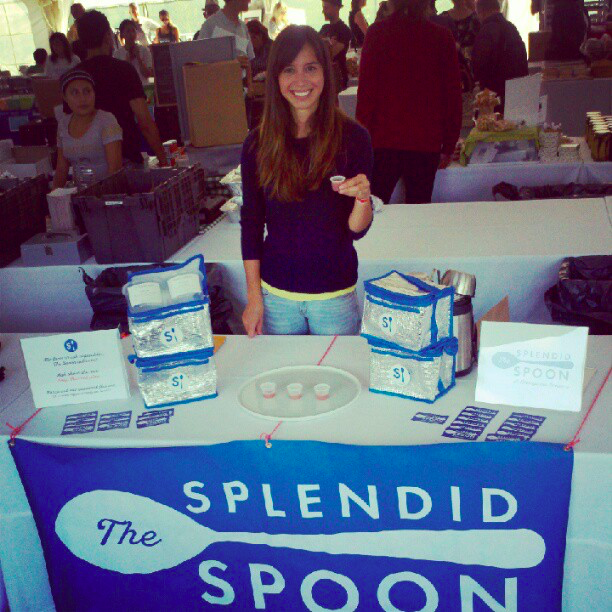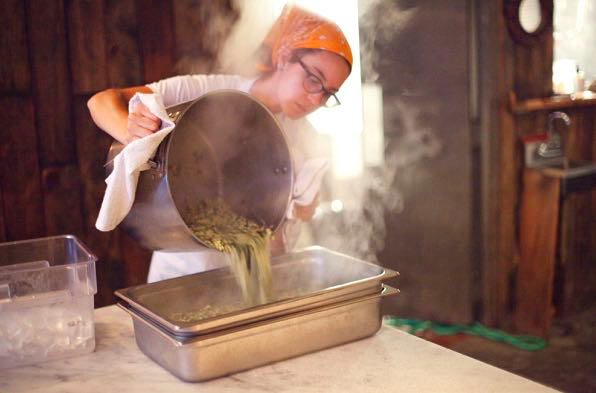By Nicole Centeno

I have a history with food. It started with early enchantment in my mom’s garden, turned to animal-rights-fueled vegetarianism in high school, evolved into the study of biochemistry and diets as treatment for epilepsy in college, took a dark dip into bulimia and diet pills followed by several years of healing that included studying at the Classic Culinary program at the International Culinary Center (then the French Culinary Institute) in NYC, and then another major fork in the road when I became pregnant and was faced with my biggest question yet: how does someone with so many complicated food experiences feed herself and another human? I didn’t know, but pregnancy gave me a newfound determination to create a final, foolproof method.
I judged, because of my time in the biochemistry lab reading peer-reviewed research papers, that diets with lots of rules and ingredient no-no’s were not grounded in real science, or that their research was dubious and easily debunked. I knew, because of my personal history with eating disorders, that diets requiring lots of careful consideration every time I felt hunger would be tricky or potentially triggering. I believed, because of the childlike joy certain food experiences still gave me, that I could harness that power to change food from something that controlled me into a tool that could free me from stress.
I launched Splendid Spoon with the idea that one simple change every day could improve my relationship with food. A humble bowl of soup, made with whole, clean ingredients just like my mom used to make, was my grounding point every afternoon.
A spoon was the tool connecting me with my food — special because it lifts and cradles our food (how I wanted to feel when I ate) instead of slicing, prodding, or impaling it (how food had made me feel in the past).
I chose to pick up a spoon and eat a bowl of fresh plant-based soup every day, and filled my fridge with soups so I didn’t have to negotiate between calorie counts, granola bars, or takeout at least once a day.

I started the business by bringing this simple soup-centric habit to my customers, with the goal of creating a collection of Splendid Spoon products that could address other food stressors. What happens when I go overboard on the holidays or feel out of control again? Enter the Reset (the all-soup day formerly known as the Soup Cleanse). What can I eat for breakfast? Low-sugar, satisfying smoothies. What do I do when I get sick of soup? Soon to come additional meal formats!
I have been the primary guinea pig to test and improve Splendid Spoon recipes and experiences not just because I care about my business and customers, but because I genuinely depend on Splendid Spoon to take care of myself. Splendid Spoon meals are how I stay grounded every day and I credit these meals to keeping my body and mind strong for close to 10 years now.

Anyone who has crossed my path in the past 6 years has been asked about how they eat, what they eat, and how it makes them feel. I have taught cooking classes at Columbia University, written a cookbook, created mindful eating workshops, hosted cooking videos online, and interviewed countless nutritionists, registered dietitians, and physicians. I have also read every comment, review, cancellation reason, and product request from thousands of Splendid Spoon customers. Always a scientist at heart, I have also continued to look for supporting, peer-reviewed research on every fad diet out there (pretty lackluster, unsurprisingly).
What I have learned is that common wisdom is the north star when it comes to letting go of food anxiety.
We should eat more vegetables and focus on habits, not trends.
Turns out this piece of common wisdom is also the only diet advice that is wholly undisputed and backed by loads of peer-reviewed science.
We all have our own history with food. In today’s oversaturated wellness market and achievement-driven society, those food histories often collide with the pressure to look a certain way or practice the “right” amount of self-care. We rarely meet our own expectations in this regard, and food wellness remain unnecessarily complicated and stressful. This is why Splendid Spoon exists. I created our meal program to be a self-care package during the week, so our minds and bodies could feel stronger, more peaceful, and more resilient during the ups and downs of a busy, modern life.
I hope it helps you as much as it has helped me.
Love,
Nicole
